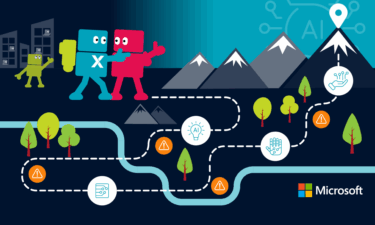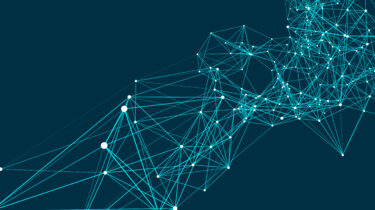What is the purpose of CRM software?

What does CRM mean?
What is CRM software? The acronym stands for Customer Relationship Management. CRM is the most common term, though you may hear it referred to as a Customer Engagement or Customer Insight solution.
Customers or service users are the lifeblood of every business and organisation. CRM processes and tools harness technology to help employees satisfy and support customers more effectively and profitably.
The benefits of CRM software
So, what is the purpose of CRM software in practice for your business?
Broadly, the purpose of CRM systems is to streamline, integrate and automate customer-facing processes and data. They save your employees time and help to reduce human error in customer management. That means you can deliver high quality and consistent customer service. You’ll reduce the risk of missing opportunities or losing business because your CRM software will point to priority customers and actions.
It’s not just for your existing customers. CRM software helps companies to manage their relationships with prospects too, navigating those all-important leads through your sales pipeline.
With CRM software, you can also target communications, products and services to meet different customers’ needs. Because all your customer data is in one place, you have access to a complete picture of each contact or account. Integrating CRM with other business systems gives you a truly holistic view of your customer, at all stages of their relationship with you. You can learn more about what your customers want and receive alerts based on recent buyer or customer behaviour. Then you can provide useful prompts to members of your team using the intelligent data insights.
The purpose of CRM software is to help generate more revenue for your business by developing a closer understanding of your existing and potential customers.
CRM software typically supports three main business functions:
CRM for marketing
Provide an end-to-end journey for customers, from their first contact with you as a lead or prospect to an ongoing relationship. Build targeted audience segments and create a relevant and appealing range of messages and communications for each. Run marketing campaigns using a range of digital and traditional media, with the ability to track and measure their success. Prioritise leads and opportunities using reliable and up-to-date data.
CRM for sales
Surface key information to your sales team that helps them target the best opportunities and build a pipeline of quality leads. Engage with customers at the right time, always knowing the next best action to move relationships forward. React faster to move deals along and close sales more efficiently.
CRM for customer service
Make sure all your customer-facing staff have access to complete information about previous contacts and engagements. Suggest the best offers, resolutions, actions and support for a customer who gets in touch. Make sure sales and marketing teams know about service issues and interactions that could affect their campaigns. Use the data in the system to anticipate customer needs, so you maximise retention and avoide disappointing your customers.
What are the phases of customer relationship management?
The purpose of CRM software is to support growing and developing organisations. In our digital age, business customers and consumers expect rapid, personalised and relevant experience from every brand and service they buy or use.
Brand new businesses can handle customers on a personalised, one-to-one basis. That’s the first phase. If you’re successful, your customer base will soon grow. Growth is great, but it results in more data and more activity, so individual employees won’t be able to notice and act on every interaction. CRM software gives businesses intelligent ways of sorting and responding to this data, so you can see and prioritise opportunities and requirements. CRM software records and monitors all customer activity so you never miss a prospect or fail to respond.
Align your teams and use intelligent insights to make informed business decisions
As organisations grow, they gain more employees and functions. This is the next phase of customer relationship management. Different teams may engage with customers in different situations. It becomes more important than ever to share a single database of information about account activity and contacts. Without it, teams may duplicate efforts or provide conflicting information – this can lead to data compliance issues and user frustrations. In a CRM system, all users have the potential to access complete and accurate account and contact information. Everyone can see what marketing offers and sales approaches a customer has received and how they reacted. In this way you always act as one company. This benefits the customer, user and ultimately the whole business.
As growth accelerates, organisations become more focused on continuous improvement and anticipating opportunities. In this phase, data insight becomes a source of competitive advantage. With CRM software that integrates and stores all your customer data, you can analyse and report on performance. Predictive analytics and AI help you spot opportunities and threats, so you can act on them before customers go elsewhere. You can evaluate the most successful sales and marketing tactics for different types of customer and replicate or evolve them to achieve even more. Robust and trusted management reporting gives you a sound basis for business decision-making.
When is the right time to adopt CRM software?
In an ideal world, every business would use CRM software from day one. Organisations would systematically build data and processes focused on customer needs, to deliver the best possible results for the business. In practice, established businesses will have found other ways to record customer relationship information, to some extent. Yet, there always comes a point when other forms of contact and activity management – such as individual spreadsheets, client information held in one employee’s head, a notebook, or an Outlook contact diary – aren’t enough. You can’t see the big picture and you miss opportunities as a result.
Signs that you need CRM software include:
- growth in sales and customer numbers putting a strain on processes and resources
- spending too much time on manual admin and customer data management
- lack of transparency in customer data, resulting in poor customer feedback about service quality and communication
- conflict between teams about who “owns” a customer
- regularly losing customers to competitors
- not being able to respond fast enough to orders and enquiries
- difficulty in reporting on performance
- data compliance issues or concerns
- disconnected systems causing duplication of data entry or management
What’s the best way to get started with CRM?
At Xpedition, we recommend Microsoft Dynamics 365 for every phase of your customer relationship management journey. It’s cost-effective, scalable and integrates with other systems and familiar office applications that you rely on. Find out more about Dynamics 365 or get in touch with the Xpedition team to talk about whether your business is ready to benefit from CRM software.
Watch our free on-demand webinar to discover how to effectively embark on your digital transformation journey and how you can accelerate your business success with an intelligent CRM solution in the cloud.



